"My most recent analysis ... reveals a striking trend: A generation of conservative young priests is on the rise in the U.S. Church." - Fr. Andrew Greeley, in the article, "Young Fogeys", from The Atlantic Magazine. January, 2004.
Tuesday, December 26, 2006
Sunday, December 24, 2006
Saturday, December 23, 2006
B16 on Advent (part 4)
Part of the purpose of Advent within the Church year consists in reviving once more this awareness within us. It should urge us to confront these truths, to admit the extent of our lack of redemption, which did not simply exist in the world at some time and perhaps still exists somewhere but which is a present reality within ourselves and within the Church.
The Christian existence, therefore, includes this as well: that we, out of the distress of our own darkness, like the man Job, dare to speak to God. It also means that we do not think we could present to God only half of our existence and must spare him all the rest because it might grieve him. No - to him in particular we may and must carry the total burden of our existence in complete honesty."
Friday, December 22, 2006
Fiiiiive Gollllld Rinnnnngs

The rings above are episopal rings from the archives of the Archdiocese of Boston; rings that were worn, at one time or another, by Boston's Archbishops. The pic came from the blog of Boston's current Archbishop, Sean Cardinal O'Malley.
If you haven't seen it, Cardinal O'Malley's blog is called (brace yourself for the shock) cardinalseansblog. He was, as best as anyone can tell, the first member of the College of Cardinals to dive into the deep end of the New Evangelization and make use of the means of communication (blogs and Podcasts, for example) that are common today. Though it seems to be catching: The Archbishop of Sydney, George Cardinal Pell, has made his Christmas message available for downloading at the website for the Archdiocese of Sydney.
Anyway, while we're on rings, Cardinal O'Malley's blog the other day had some great close-ups of other rings:

This is the ring given to Cardinal O'Malley (and all the new Cardinals) by Pope Benedict XVI at the Consistory last March.
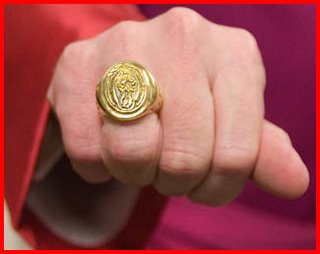
How's that for episcopal "bling-bling"?
Thursday, December 21, 2006
Coming In or Going Out?
Of course, thanks to Michael Deaver (master of President Reagan's public events), we know that the visual is worth more than the spoken words. If you take a look at the video, notice that the "priestess" is standing abut 5 yards from a set of double doors and a brightly-lit "Exit" sign.
So far from the Church; so close to the door...
Hail, Flora?
"Flora has never mated, or even mixed, with a male dragon, and fertilized all the eggs herself, a process culminating in parthenogenesis, or virgin birth. Other lizards do this, but scientists only recently found that Komodo dragons do too.
'Nobody in their wildest dreams expected this. But you have a female dragon on her own. She produces a clutch of eggs and those eggs turn out to be fertile. It is nature finding a way,' Kevin Buley of Chester Zoo in England said in an interview."
Well "Merry Christmas!" to all the skeptics who for years have been coming up with alternative theories about Mary's virginal conception. Santa finally brought you someone new to pick on!
I'm sure it won't be long before they start looking down at us "cultic, unenlightened, superstitious" types, and we start hearing that it couldn't possibly have happened that way; that some zookeeper probably snuck Flora into the boy-dragon's cage for the night (you know what they say: "What happens in the male Komodo Dragon pen, stays in the male Komodo Dragon pen!").
Flora, meanwhile, was unavailable for comment. She's gone in haste to visit her kinsdragon across town at the London Zoo.
Wednesday, December 20, 2006
More B16 on Advent: Waiting
 In this season of longer checkout lines and traffic backups, here's what Pope Benedict said about waiting during the season of Advent (again, these reflections I've been putting in are from "Co-Workers of the Truth: Meditations for Every Day of the Year", published by Ignatius Press):
In this season of longer checkout lines and traffic backups, here's what Pope Benedict said about waiting during the season of Advent (again, these reflections I've been putting in are from "Co-Workers of the Truth: Meditations for Every Day of the Year", published by Ignatius Press):"One of the fundamental elements of Advent is waiting, which at the same time is hoping. ... Jesus has illustrated [waiting and hoping] in many parables: in the story of the servants who wait for the return of their master or else, forget about his return and act as though they were the owners; in the tale about the virgins who are able or unable to wait for the groom; and in the parables of seedtime and harvest.
Man throughout his life is in a state of waiting; that man is in a state of waiting never becomes clearer than in times of illness. And in the same sense waiting becomes an unbearable burden when it remains entirely uncertain whether we may expect anything at all. And yet, if time itself contains a meaning, if each moment hides its specific quality and value, then the joyful expectation of greater things to come will make the present time even more precious and carry us, as if with invisible power, through all the moments of our time.
To offer us precisely this kind of waiting is the purpose of Advent; it represents the genuine Christian form of waiting and hoping. For the gifts of Jesus Christ do not merely reside in the future but indeed extend into the present. He, though hidden, dwells here already. He speaks to me in manifold ways - through Sacred Scripture, through the Church seasons, through the saints, through various events in everyday life, through all of creation, which takes on a different appearance when he is standing behind it ... I can talk to him; I can wail before him and offer him my sufferings, my impatience, my questions, knowing that he is lending me an open ear."
Monday, December 18, 2006
Ladies and Gentlemen, We Have Begun Our Initial Descent...

They're the words we can't wait to hear. When the captain comes over the loudspeaker and announces that that the flight attendants are coming to collect the garbage, and we should put our seats all the way up, lift the seat trays in the locked position, and buckle ourselves in. We're about to arrive at our destination.
Each year, on December 17th, our celebration of the Advent season takes a turn towards our final destination of Christmas. In this "Pre-Octave" (8 day) countdown, our focus shifts from the "joyful hope for the coming of our savior, Jesus Christ" a SECOND time, to remembering the last time He came to earth. This year it fell on a Sunday, and not just any Sunday: the third Sunday of Advent. The rose vestments made for a very visual transition into these late days of Advent that most people do not notice.
Picking up on the "collecting the garbage" theme, Sunday night I was asked to preach at a friend's Advent Penance Service at his parish. Like most places, he holds these things for both Advent and Lent, and it's always a good time to get together with a bunch of Priests both before and after the service. Don't think it's ONLY a good time: this is a parish that comes out in force to take out their spiritual trash in Confession (enough of a crowd that it took 15 priests over an hour to hear everyones' confessions).
So as the deadline of December 24th approaches, and maybe we've let the shopping and social "holiday season" get the best of us, now is the time to sit up straight, put the cookies aside (just for a moment), and prepare ourselves to honor the commemoration of the birth of Jesus Christ.
Friday, December 15, 2006
B16: In Your Face on Advent
 This is another reflection on Advent by Pope Benedict from Co-Workers of the Truth, a collection of then-Cardinal Ratzinger's homilies, newspaper articles, speeches, etc., that were compiled into a book of small daily meditations:
This is another reflection on Advent by Pope Benedict from Co-Workers of the Truth, a collection of then-Cardinal Ratzinger's homilies, newspaper articles, speeches, etc., that were compiled into a book of small daily meditations:"Let us ... gaze on John the Baptist. Challenging and active he stands before us, a ‘type’ of the manly vocation. In harsh terms he demands metanoia, a radical transformation of attitudes. Those who would be Christians must be ‘transformed’ ever again. ... Those who want to find God need, again and again, that inner conversion, that new direction.
And this applies to the total outlook on life. Day by day we encounter the world of visible things. It assaults us through billboards, broadcasts, traffic, and all the activities of daily life, to such an enormous extent that we are tempted to assume there is nothing else but this. Yet the truth is that what is invisible is greater and much more valuable than anything visible. One single soul, in Pascal’s beautiful words, is worth more than the entire visible universe.
But in order to have a living awareness of this, we need conversion, we need to turn around inside, as it were, to overcome the illusion of what is visible, and to develop the feeling, the ears and the eyes, for what is invisible. This has to be more important than anything that bombards us day after day with such exaggerated urgency.
Metanoeite: change your attitude, so that you may see God’s presence in the world - change your attitude, so that God may dwell in you and, through you, in the world. John himself was not spared this painful process of change, of turning around."
Thursday, December 14, 2006
Confessions: Quality or Quantity?
For Young Fogeys, Advent means hopping around to other parishes to be available to "bind and loose" at the communal penance services that are so prolific during the prequel to Christmas. Yesterday was one of those days (come to think of it, so is today; only I have a funeral first) when I supplied my sacerdotal services for Sacramental "binding and loosing". In the afternoon, I was at a Catholic high school across the river (in another county, state, and diocese) which some parishioners attend, and then in the evening I was at a parish not far from here (but far enough that I was "Father Stranger-Visitor", meaning I was a magnet for those who fear being recognized if they went to Confession to their Pastor, and love seeing an unfamiliar face in a Roman Collar).
In both places I was impressed by not only the quantity but the quality of the Confessions I heard. In the high school there were a steady stream of students for ninety minutes. Now having been a high school student, it would be easy to be cynical and say that they were only going to Confession to get out of class. But there was something about their Confessions that said that they were taking this as a serious unloading of sins, rather than an exercise in running the clock down before the dismissal bell. There was depth. There was introspection. There was a politeness and an understanding of the Priestly ministry being exercised in their midst (I believe there were about 20 Priests hearing Confessions in the school that afternoon). I left the school proud of these students I really didn't know, and especially proud of the school chaplain and faculty for the catechesis they're obviously giving the students. Later that night I went to the parish Advent penance service and experienced the same thing: depth in their exams of self and trust in the Sacrament to say their sins to a Priest honestly and without "packaging". Faith. I saw faith.
The Sacrament of Confession (or "Penance", or "Reconciliation", or whatever you want to call it) is, for me, the secret barometer on the spiritual health of a parish. Here's what I look for:
- Check the parish's bulletin. There should be as many opportunities for Confessions as there are Priests assigned to the parish. For example, a two-Priest parish should have at least 2 set times per week for scheduled Confessions. Also, what day of the week are confessions heard? Still only Saturdays? Saturday isn't the "free day" it was years ago when lines of penitents were plentiful. Now there's food shopping and kids' sporting events and other stuff that make finding the time to get to the church for confessions difficult. If a parish has a scheduled time for Confessions sometime on a weekday, I'm impressed. If it's a weekday evening, they get extra credit in my book.
- "...or by appointment." You see it in almost every parish bulletin. For example, St. Philintheblank's has scheduled Confessions on "Saturdays from 4 to 4:15pm, or by appointment". Confessing sins is embarrassing and humiliating; no one can get through to their Priest on the telephone without giving their name, and who wants to give their name and make an appointment to let out their dirty laundry? Don't get me wrong: The principle behind it of Priests being available to their people at a time when something has moved someone to unload their sins is great. I've had more than a few people actually call me and say, "Father, I'd like to go to Confession." Generally, though, "O-B-A" is a load of garbage. It's Father's way of not sitting in the box without feeling guilty. Bring a book, Father, and maybe a cushion for your chair.
- Penance services. I don't know how I feel about them. I know the Rite of Penance absolutely allows and encourages them. Pope Benedict, in fact, led a communal penance service this past Lent in St. Peters Basilica. But I fear that these communal services have caused a certain numbness towards the need to immediately confess any serious sins. Many people, children especially, are now so accustomed to these communal penance services that they simply do not know how to initiate a private confession ("Bless me, Father, for I have sinned. It has been ... Since my last confession"). I know these penance services mean they're going to Confession at least twice a year (assuming most parishes have these things during Advent and Lent), and that's not a bad thing at all. But these communal services, if not done well, can very easily degenerate into sloppy assembly lines more than opportunities for Sacramental Grace in an encounter with Christ the Divine Physician. Years ago I helped with confessions at a parish mission where the Priest giving the mission told the people, "When you come up, only tell the Priest one thing that keeps you from God." WHAT THE HELL DOES THAT MEAN? What if I was sitting at home feeling sweaty, then clammy, then nauseous, then short of breath, then with sharp pains in my left arm and chest? So I go to the emergency room and the doctor there says, "Don't tell me everything; Only give me ONE symptom"? So I tell him I'm sweaty, and he gives me a glass of orange juice and sits me off in a corner. You know what happens next: Twenty minutes later I'm floating above the ER and "heading towards the light"!
- Communal Penance Services are meant to be an embellishment in anticipation of the private Confession of sins that it's assumed will follow. But sometimes the symbol overtakes the substance, and we get so caught up in the Oprah-ness (mood lighting, soft music, and the "writing your sins down and burning them in the baptismal font") that the mind-boggling opportunity we, as Catholics, have to confess our sins and receive absolution is almost anti-climactic.
- General absolution. If you're on the battlefield or on a plane going down, then O.K., that's what it was meant for. But Priests who give it out like candy with a wink-wink to their flock (because there's such a large crowd and Father neglected to have a sufficient number of Priests available to hear everyone's confessions in a reasonable amount of time - in fact he invited no Priests, just like he did last time the parish had a penance service, and the time before that, and the time before that...) are not being pastoral. That's being lazy.
Yes, we can easily sit around and complain about what's wrong with things in the Church (and, believe me, Priests have this down to an art form). We can argue if Priests stopped being available for Confessions because people stopped going, or if people stopped going to Confession because the Priests stopped making themselves available (the ecclesial 'chicken or the egg'). Some measure success in quantity, while some argue that quality makes something better. But once in a while you get to see something that's well-done, like those 2 opportunities I had to hear Confessions, and you realize that when you've got both quality and quantity going on at the same time it's something special.
Saturday, December 09, 2006
Beware The Nose Police!!!
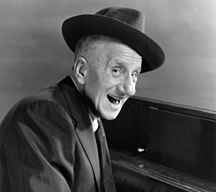 By now many of you have seen the story coming out of San Francisco about the "Got Milk" campaign which has "become a thing":
By now many of you have seen the story coming out of San Francisco about the "Got Milk" campaign which has "become a thing":These are snippets from an article in the SF Gate (for the whole article, click here):
"The novelty people were talking about Monday was the chocolate chip cookie scent placed in five bus shelters in the city as part of a m
 arketing campaign by the California milk industry to promote its product. The idea is that once people get a whiff of the cookie scent, they'll get a hankering for milk. The scene Monday around one of the bus shelters, at Stockton and Sutter streets, was a bit like listening to the chatter in a winery tasting room. 'Vanilla-y,'' one woman said as she walked past the shelter. ... The campaign has made news -- partly because it's the first of its kind in the nation, and
arketing campaign by the California milk industry to promote its product. The idea is that once people get a whiff of the cookie scent, they'll get a hankering for milk. The scene Monday around one of the bus shelters, at Stockton and Sutter streets, was a bit like listening to the chatter in a winery tasting room. 'Vanilla-y,'' one woman said as she walked past the shelter. ... The campaign has made news -- partly because it's the first of its kind in the nation, and  partly because this being San Francisco, there's controversy. Criticism has come from animal-rights advocates who oppose the dairy industry and from those against promoting food products when there's hunger in the world. ... Leading the charge against the campaign have been activists in the scent-sensitive community who are upset that public space is being invaded with another aroma that, they fear, can induce headaches and nausea and trigger asthma attacks."
partly because this being San Francisco, there's controversy. Criticism has come from animal-rights advocates who oppose the dairy industry and from those against promoting food products when there's hunger in the world. ... Leading the charge against the campaign have been activists in the scent-sensitive community who are upset that public space is being invaded with another aroma that, they fear, can induce headaches and nausea and trigger asthma attacks."Of course, once there's controversy and the media get involved, every group ("group" here being defined as anything ranging from a large lobbying organization with thousands on their mailing list, to one attention-needy person sitting in front of their computer with an internet connection and a press release written on some letterhead they got made at Kinkos) wants their 15 minutes of fame, and so groups claiming to represent the interests of diabetics, the homeless, and even the obese are also lodging complaints against the smell of chocolate chip cookies. So what's the result? Once again the "politically correct" crowd has triumphed, and the California Dairy Farmers Association must walk with their heads in shame for imposing their cookie scent on society.
Of course, Young Fogeys have long known about the existance of the "Nose Police." While we haven'
 t been dealing with chocolate chip cookies, the Church has long used incense in her liturgical worship. We are sensual people; we get our information through our senses, and incense not only gives us something to smell at Mass (something besides the mothball smell of the old lady next to you, or the 'just got out of soccer practice' of the kid on the other side), but the sight of the smoke rising is a visual reinforcement of Psalm 141:2 ("Let my prayer rise like incense before thee"), or the beautiful image of an angel's censer filled with incense to mingle with the prayers of the Saints in heaven (Rev 8:3-4).
t been dealing with chocolate chip cookies, the Church has long used incense in her liturgical worship. We are sensual people; we get our information through our senses, and incense not only gives us something to smell at Mass (something besides the mothball smell of the old lady next to you, or the 'just got out of soccer practice' of the kid on the other side), but the sight of the smoke rising is a visual reinforcement of Psalm 141:2 ("Let my prayer rise like incense before thee"), or the beautiful image of an angel's censer filled with incense to mingle with the prayers of the Saints in heaven (Rev 8:3-4). But we've all been through this: The moment you use incense at Mass, the Nose Police springs into action! They show their protest not with press releases, but with coughs. The coughs generally take 2 forms: First, there's the "pre-emptive strike" NP-ers. They actually begin their hacking when they see the thurible stand being put out in the sanctuary. Most NP-ers, however, fall into the "Shock and Awe" group: the ones who wait until a part of Mass that might involve the use of incense, and then from wherever they are in church (usually in the last row or so), their coughs break through the silence as if their lungs' well-being hang in the balance with every spoonful of incense used. These aren't the coughs of congestion, mind you, but coughs that are meant to say, "Why are you using that stuff? No other Priest in the parish uses incense! Don't you know there are starving children in China who could sell this incense in order to buy food? Don't you know that this will make Mass last longer by a whole 3 minutes, which means there'll be a line to get a seat at Denny's? Is this where my collection money goes? Don't you know my chihuahua was run over by a UPS truck delivering boxes of incense?"
But we've all been through this: The moment you use incense at Mass, the Nose Police springs into action! They show their protest not with press releases, but with coughs. The coughs generally take 2 forms: First, there's the "pre-emptive strike" NP-ers. They actually begin their hacking when they see the thurible stand being put out in the sanctuary. Most NP-ers, however, fall into the "Shock and Awe" group: the ones who wait until a part of Mass that might involve the use of incense, and then from wherever they are in church (usually in the last row or so), their coughs break through the silence as if their lungs' well-being hang in the balance with every spoonful of incense used. These aren't the coughs of congestion, mind you, but coughs that are meant to say, "Why are you using that stuff? No other Priest in the parish uses incense! Don't you know there are starving children in China who could sell this incense in order to buy food? Don't you know that this will make Mass last longer by a whole 3 minutes, which means there'll be a line to get a seat at Denny's? Is this where my collection money goes? Don't you know my chihuahua was run over by a UPS truck delivering boxes of incense?"In the end, the best response I can give to the Nose Police came from a Priest of my diocese: "There are 2 smells in the afterlife: incense and sulfur. Get used to one of them!"
Friday, December 08, 2006
Free Will and the Immaculate Conception
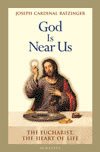 In a talk I recently gave to catechists for an Advent Mini-Retreat, I made use of a 1995 talk given by Pope Benedict at a Marian Congress. His talk was a reflection on the line in the Nicene Creed, "By the power of the Holy Spirit He was born of the Virgin Mary, and became Man". It's a line we recite every week (as well as Holy Days of Obligation, such as today), but can get lost as we go on 'auto pilot' when reciting things we've committed to memory. This talk is one of 13 essays, homilies, and other stuff found in God is Near Us, published by Ignatius Press about 3 years ago.
In a talk I recently gave to catechists for an Advent Mini-Retreat, I made use of a 1995 talk given by Pope Benedict at a Marian Congress. His talk was a reflection on the line in the Nicene Creed, "By the power of the Holy Spirit He was born of the Virgin Mary, and became Man". It's a line we recite every week (as well as Holy Days of Obligation, such as today), but can get lost as we go on 'auto pilot' when reciting things we've committed to memory. This talk is one of 13 essays, homilies, and other stuff found in God is Near Us, published by Ignatius Press about 3 years ago.In the "meat" of his address, Papa Ratzinger examines 3 passages from Scripture to see how they defend what we say in the Creed: The "annunciation" of God's plan to St. Joseph (found in Matthew 1:18-25), the prologue of John's Gospel (specifically how Jn1:14 "The Word was made flesh", blossoms in Jn 6:51 "The bread which I shall give for the life of the world is my flesh"), and Luke's account of the Annunciation (1:26-38). In that last reflection, he says this:
"Without the freely given assent of Mary, God cannot become man. Certainly, this 'Yes' Mary says is wholly by grace. The dogma of the Immaculate Conception of Mary, whereby she was freed from original sin, has in fact just exactly this as its sole significance: that no human being can set in motion the process of salvation by his own powers alone, but that his 'Yes' is wrapped around and supported within by that divine love which comes first and before all else and that already surrounds man before he is even born. 'All is grace.' Yet grace does not remove freedom; rather, it brings it into being. The entire mystery of redemption is present in this story and is summed up in the figure of the Virgin Mary: 'Behold, I am the handmaid of the Lord; let it be to me according to your word' (Lk 1:38)."
 God created each of us with free will. He could've created a 'clone army' who would've followed his orders perfectly and completely, but he didn't. He freely chose to create us in His image and likeness, and in doing so went beyond physical likeness to ontological likeness. He gave us human beings the ability to freely choose.
God created each of us with free will. He could've created a 'clone army' who would've followed his orders perfectly and completely, but he didn't. He freely chose to create us in His image and likeness, and in doing so went beyond physical likeness to ontological likeness. He gave us human beings the ability to freely choose.This gift of free will trickles down into all aspects of our life as Christians, especially in the Sacramental life of the Church: Every reception of a Sacrament requires some level of questioning on the part of the Church and acceptance on the part of receiver (eg - the couple giving their free consent at a marriage, parents being asked if they understand their newfound obligations when they ask to have their child baptized, even the "amen" at Holy Communion is the acceptance of the Church's teaching that the Communion Host about to be consumed is truly the Body of Christ). At every one of those moments we exercise our free will as given to us by God.
And things would have been all 'hunky-dorey', had not Original Sin entered the picture. Because of it, things like greed, pride, lust (and a bunch of other nastys) are now a part of our human nature. Mother Teresa takes her gift of free will and does tremendous good, while Adolf Hitler takes his free will and does tremendous evil. So rathe
 r than the perfectly-obeying clone army which certainly would have been easier for Him to manage, God has a bunch of "Mini Mes" on his hands: still in "His image and likeness", but seemingly always out to "get Him"! Put yourself into that dilemma: You like freshly squeezed orange juice so you go out and buy a juice machine, but when you get it home you find out the machine can't make orange juice. What would you do? You'd start all over and get a new machine, right? The amazing thing is that, even though salvation history is full of times when God said to do one thing and his people did another, He never created a "Humanity 2.0", without the burden of free will which we seemed to have such a problem with. Our Lady, born without the stain of Original Sin, could see things with a sharper perspective than we who were born with it. What it means is that Mary's big 'Yes' was given with an understanding of the past, present, and future that we have to continually struggle to achieve when we give our little "yesses" to God. Every day (several times a day, in fact) we have to reassert that "yes" to God, because (as many of us know so well), our "yes" in one moment can become a "no" in an embarrassingly, painfully short amount of time. Thank God, though, that he never gives up; never stops asking for our "yes". More than that, thank God that He goes so far as to tip the scales in our favor by giving us the advantage of Confession and the Eucharist, so that we can have at our disposal (albeit temporarily) what Mary had going for her (the Eucharist allows us to have Christ dwell within us and Confession removes sin and restores us to communion with God).
r than the perfectly-obeying clone army which certainly would have been easier for Him to manage, God has a bunch of "Mini Mes" on his hands: still in "His image and likeness", but seemingly always out to "get Him"! Put yourself into that dilemma: You like freshly squeezed orange juice so you go out and buy a juice machine, but when you get it home you find out the machine can't make orange juice. What would you do? You'd start all over and get a new machine, right? The amazing thing is that, even though salvation history is full of times when God said to do one thing and his people did another, He never created a "Humanity 2.0", without the burden of free will which we seemed to have such a problem with. Our Lady, born without the stain of Original Sin, could see things with a sharper perspective than we who were born with it. What it means is that Mary's big 'Yes' was given with an understanding of the past, present, and future that we have to continually struggle to achieve when we give our little "yesses" to God. Every day (several times a day, in fact) we have to reassert that "yes" to God, because (as many of us know so well), our "yes" in one moment can become a "no" in an embarrassingly, painfully short amount of time. Thank God, though, that he never gives up; never stops asking for our "yes". More than that, thank God that He goes so far as to tip the scales in our favor by giving us the advantage of Confession and the Eucharist, so that we can have at our disposal (albeit temporarily) what Mary had going for her (the Eucharist allows us to have Christ dwell within us and Confession removes sin and restores us to communion with God).Think of THAT next time that line in the Creed comes around!
Thursday, December 07, 2006
Feast of St. Ambrose
 Where do you begin to sing the praises of St. Ambrose?
Where do you begin to sing the praises of St. Ambrose?- Made it to the "final four" - the four great "Doctors of the Western Church" (so declared Pope Boniface VIII in 1298).
- Memorialized as one of the four Saints supporting the Altar of the Chair of Peter in GianLorenzo Bernini's bronze masterpiece in St. Peter's Basilica.
- The guy who tells St. Monica as she complained about her wayward son, Augustine, "Woman, you need to talk more to God about your son than to your son about God".
- The guy who would eventually baptize St. Augustine.
- The guy who puts the smackdown on the Roman Emperor, saying, "The Emperor is in the Church, not above it!"
- The bishop who wrote to his brother bishops, "He who reads much and understands much, receives his fill. He who is full, refreshes others. ... Therefore, let your words be rivers, clean and limpid, so that in your exhortations you may charm the ears of your people. And by the grace of your words win them over to follow your leadership. Let your sermons be full of understanding. ... Let no word escape your lips in vain or be uttered without depth of meaning."
- the homilies, the writings, even the little known "Ambrosian Rite of the Mass", and Ambrosian chant.
How do you pick?
I guess you don't "pick"; you just take a step back and appreciate.
Wednesday, December 06, 2006
Hello, Newman...
 Though this comes from John Henry Newman (1801-1890), it is technically not an Advent sermon, and so I didn't put "Newman on Advent" in the title. It is part of an anthology of Cardinal Newman's writings (he was created a Cardinal by Pope Leo XIII in 1879) called Selected Sermons, Prayers, and Devotions. In this day and age when homilies have become comedy routines, peppered with jokes and stories in an attempt to hold the ever-diminishing attention span of the pew-dweller, sermons like these are unthinkable at your average Sunday Mass at Saint Philintheblank's! This is from a sermon on the Incarnation of Christ:
Though this comes from John Henry Newman (1801-1890), it is technically not an Advent sermon, and so I didn't put "Newman on Advent" in the title. It is part of an anthology of Cardinal Newman's writings (he was created a Cardinal by Pope Leo XIII in 1879) called Selected Sermons, Prayers, and Devotions. In this day and age when homilies have become comedy routines, peppered with jokes and stories in an attempt to hold the ever-diminishing attention span of the pew-dweller, sermons like these are unthinkable at your average Sunday Mass at Saint Philintheblank's! This is from a sermon on the Incarnation of Christ:"Let us, then, according to the light given us, praise and bless Him in the Church below, whom Angels in heaven see and adore. ... He came in lowliness and want; born amid the tumults of a mixed and busy multitude, cast aside into the outhouse of a crowded inn, laid to His first rest among the brute cattle. ... Great is our Lord, and great is His power, Jesus the Son of God and Son of Man. Ten thousand times more dazzling bright than the highest Archangel, is our Lord and Christ."
Tuesday, December 05, 2006
St. Josemaria Escriva on Advent
 From a homily he gave during Advent of 1951, which can be found in Christ is Passing By, a book of St. Josemaria's homilies given throughout the Church's liturgical year:
From a homily he gave during Advent of 1951, which can be found in Christ is Passing By, a book of St. Josemaria's homilies given throughout the Church's liturgical year:"I don't wish to go on any longer on this first Sunday of Advent, when we begin to count the days separating us from the birth of the Savior. ... You see within yourselves, on the one hand, pride, sensuality, boredom, and selfishness; on the other [hand], love, commitment, mercy, humility, sacrifice, joy. You have to choose. You have been called to a life of faith, hope, and charity. You cannot seek lesser goals, condemning yourself to a life of mediocre isolation. Some time ago I saw an eagle shut up in an iron cage. It was dirty, and half its feathers were missing. In its claws was a piece of carrion. I then thought what would happen to me were I to renounce my vocation from God. I felt sorry for that lonely, fettered bird, born to soar the heavens and gaze at the sun. We too can scale the 'humble heights' of love for God, of service to all men. However, in order to do this, we must make sure that our souls have no nooks or crannies into which the light of Jesus Christ cannot shine. And then Christ will be in your mind, on your lips, in your heart, stamped on your deeds. All of your life will be full of God - in its sentiments, its works, its thoughts and its words.
'Look up, and lift up your heads, because your redemption is at hand,' we have just read in the Gospel. This time of Advent is a time for hope. These great horizons of our Christian vocation, this unity of life built on the presence of God our Father, can and ought to be a daily reality.
Ask our Lady, along with me, to make it come true. Try to imagine how she spent these months, waiting for her Son to be born. And our Lady, Holy Mary, will make of you alter Christus, ipse Christus: another Christ, Christ himself!"

St. Josemaria Escriva moved to Rome as Opus Dei grew. You can visit his tomb in Opus Dei's prelatic Church (technically, Opus Dei is not a Religious Order, but a "personal prelature" of the Pope), Our Lady of Peace, under the main altar (pictured left). For information about the visiting hours, times confession is available, and a map, click here.
Monday, December 04, 2006
St. Charles Borromeo on Advent
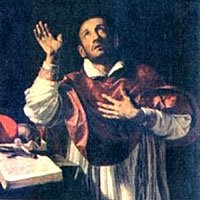 From a pastoral letter by St. Charles Borromeo (which was in this morning's Office of Readings in the Liturgy of the Hours):
From a pastoral letter by St. Charles Borromeo (which was in this morning's Office of Readings in the Liturgy of the Hours):"Beloved, now is the acceptable time spoken of by the Spirit, the day of salvation, peace, and reconciliation: the great season of Advent. ... Each year, as the Church recalls this mystery, she urges us to renew the memory of the great love God has shown us. This holy season teaches us that Christ's coming was not only for the benefit of his contemporaries; his power has still to be communicated to us all. We shall share his power, if, through holy faith and the sacraments, we willingly accept the grace Christ earned for us, and live by that grace and in obedience to Christ. The Church asks us to understand that Christ, who came once in the flesh, is prepared to come again. When we remove all obstacles to his presence he will come, at any hour and moment, to dwell spiritually in our hearts, bringing with him the riches of his grace."
 Speaking of Borromeo, one of the neat churches in Rome is the Basilica of Sts Ambrose and Charles on the Corso. The "Charles" in the church's title is for Borromeo, and the church has his heart in a reliquary behind the main altar. What I think is most excellent about this parish, though, is their commitment to evangelization and catechetics. At the entrance of the Basilica is a wall of racks (the "pamphlet" kind, not the "torture" kind), holding very well-done booklets in 5 languages about what the Catholic Church teaches on various topics. The parish has put them online, and you can check them out for yourself, or print them for others, by clicking here.
Speaking of Borromeo, one of the neat churches in Rome is the Basilica of Sts Ambrose and Charles on the Corso. The "Charles" in the church's title is for Borromeo, and the church has his heart in a reliquary behind the main altar. What I think is most excellent about this parish, though, is their commitment to evangelization and catechetics. At the entrance of the Basilica is a wall of racks (the "pamphlet" kind, not the "torture" kind), holding very well-done booklets in 5 languages about what the Catholic Church teaches on various topics. The parish has put them online, and you can check them out for yourself, or print them for others, by clicking here.
Sunday, December 03, 2006
OF/YF Test #1
B16 on Advent
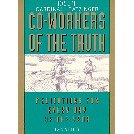 Back in 1992, Ignatius Press published a book of daily meditations by then-Cardinal Joseph Ratzinger, called Co-Workers of the Truth (his episcopal motto). Though the meditations are his, they are a collection of fragments from articles, essays, etc., the Cardinal had written over the years and weren't specifically written for the book. I think it's a great primer for those who want to sample his writings, yet feel a little intimidated to read Pope Benedict's stuff (C'mon, we've all had that dream plenty of times: You get to page four and with a big, "huh?", drop the book, run out the door screaming and swearing never to touch a Ratzinger book again. What, just me?). These meditations are great samplings of his style and depth (remember, he's a theology professor by training, so don't look for fluff), it's arranged around the liturgical seasons of the Church (so you get Lent meditations at Lent, Easter at Easter, etc.), and are, more or less, one page in length. Don't fear, Scarlett; if you don't understand today's entry, tomorrow's another day.
Back in 1992, Ignatius Press published a book of daily meditations by then-Cardinal Joseph Ratzinger, called Co-Workers of the Truth (his episcopal motto). Though the meditations are his, they are a collection of fragments from articles, essays, etc., the Cardinal had written over the years and weren't specifically written for the book. I think it's a great primer for those who want to sample his writings, yet feel a little intimidated to read Pope Benedict's stuff (C'mon, we've all had that dream plenty of times: You get to page four and with a big, "huh?", drop the book, run out the door screaming and swearing never to touch a Ratzinger book again. What, just me?). These meditations are great samplings of his style and depth (remember, he's a theology professor by training, so don't look for fluff), it's arranged around the liturgical seasons of the Church (so you get Lent meditations at Lent, Easter at Easter, etc.), and are, more or less, one page in length. Don't fear, Scarlett; if you don't understand today's entry, tomorrow's another day.In the book there are about 10 meditations on Advent, and I'm thinking that, over the course of this month, I might include some of them in my blog for your daily perusal. Here's one appropriate for the start of Advent:
"'Advent' is a Latin word that can be rendered in English as 'presence, arrival.' In the language of the ancient world it was a technical term expressing the arrival of an official, especially the arrival of kings or emperors in the province. ... The Christians adopted this term to proclaim their special relationship to Jesus Christ. For them, he is a King who entered this wretched province, our world, and gifted it with the feast of his visit. ... He has not abandoned this world. He has not left us behind alone. Even though we cannot see and touch him like so many things - he is present, nevertheless, and visits us in many ways. Advent is a twofold reminder for us: for one, that God's presence in the world has already begun, that he, in hidden ways, is already here; and then, that his presence has only just begun and not yet reached completion but is still growing, developing, maturing. His presence has already begun, and we, the believers, are the ones through whom he desires to be present in the
world. Through our faith, hope, and love he desires to shine his light ever anew into the night of the world. The lights we kindle during the dark nights of this wintertime are therefore both a consolation and a reminder:
the consoling assurance the 'the Light of the world' has already appeared in the darkness of the night in Bethlehem and has changed the unholy night of human sin into the holy night of divine forgiveness for this sin."
Saturday, December 02, 2006
Four More Years... Four More Years...
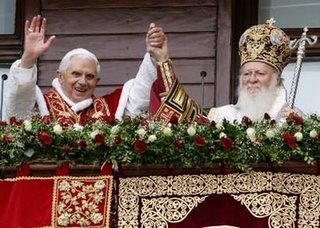
I apologize for being so silent on Pope Benedict's trip to Turkey. I had every good intention of watching the events as they were covered on EWTN, and then downloading the transcripts of the homilies and speeches in order to come up with something to say about the trip. Unfortunately, that just didn't happen.
But thanks to the blogosphere, some people did put very fine words to paper (well, to computer screen actually), and this is one of them.
Father Z has a blog called "What Does The Prayer Really Say" in which, besides commentary, he shows the literal translations of the prayers at Mass as they are written in the official Latin (and how the English translations of the 1970s fall pathetically short). He has made some very worthwhile points in his commentary on the address of Ecumenical Patriarch Bartholomew of Constantinople at the end of the Divine Liturgy which Pope Benedict attended. Check out Fr. Z's commentary and see if the photo above gives us a hint as to who has become the most unlikely of co-conspirators in Papa Ratzinger's reform of the Roman Liturgy.
Friday, December 01, 2006
Re-Advent-ing the Wheel...
Thursday, November 30, 2006
Great Saint Andrew, Friend of Jesus...
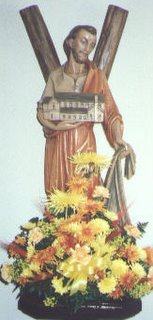 Today's Feast of the Apostle St. Andrew always has a special place in my heart because of the two years I spent at St. Andrew's Hall, the College Seminary at Seton Hall University. In fact, the picture here is from my own personal stash; this statue of St. Andrew can be found in the chapel of the college seminary; his right arm is holding a miniature of the seminary building. I can remember how the thought of spending two years there seemed like such a long time. Then I finished that and spent four very fast years at Mount St. Mary's Seminary. Now, it's been a little over eight years since I left Emmitsburg, and it is almost unthinkable that it's been that long.
Today's Feast of the Apostle St. Andrew always has a special place in my heart because of the two years I spent at St. Andrew's Hall, the College Seminary at Seton Hall University. In fact, the picture here is from my own personal stash; this statue of St. Andrew can be found in the chapel of the college seminary; his right arm is holding a miniature of the seminary building. I can remember how the thought of spending two years there seemed like such a long time. Then I finished that and spent four very fast years at Mount St. Mary's Seminary. Now, it's been a little over eight years since I left Emmitsburg, and it is almost unthinkable that it's been that long.
The word "seminary" is rooted in the word seed; the idea being that it is a place where a vocation to the Priesthood can be fed and grow. So many memories come back as I remember people and events from those two years. Say a prayer today for the men who currently study at the house on Centre Street, for those who studied there and for those whom God will call to study there in the future.
Wednesday, November 29, 2006
The Advent of "Advent"
Especially during Advent, I try to get the radio show episodes done early in the month, and yesterday I taped two episodes. The first was on the Death Penalty and our Catholic response as we advocate a "Culture of Life". Two guests were on: One, Celeste Fitzgerald, is working on the grassroots level in New Jersey to eliminate the death penalty. The other, Kirk Bloodsworth, was wrongfully convicted of a brutal rape and murder back in 1984. As science developed the ability to test evidence for DNA, he pushed for testing of the evidence that convicted him (which incredibly laid in a paper bag in the closet of a judge's chambers -- the gang on CSI would go nuts!). The tests proved he was innocent and he was released after spending 9 years in prison. He now works for an organization that lobbys state legislators to reconsider executions, for fear they could be killing innocent persons.
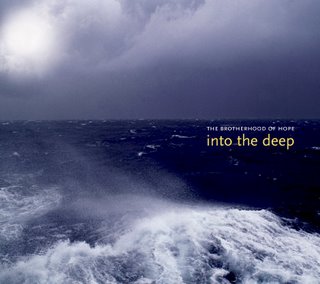 The second episode had a much more pleasant topic. The Brotherhood of Hope is doing excellent work since their start in New Jersey 26 years ago. Bishop John Smith, currently Ordinary of Trenton, brought them down to Florida State University during his previous assignment as Bishop of Pensacola-Tallahassee. Cardinal Law, during his years as Archbishop of Boston, met them while speaking at Seton Hall University's International Institute for Clergy Formation (the brothers lived in a house just outside a side gate of Seton Hall, and a conversation developed after Law was recognized by some BHs sitting outside while the Cardinal was out for a walk), and brought them up to Massachusetts, where they do great work at Northeastern U. and Boston University. Their most recent move was a return to New Jersey, where my bishop, Paul Bootkoski, invited them to work in campus ministry at the Catholic Center of Rutgers University. Anyway, the brothers have a new CD of music and meditations that are meant to get everyone to reflect on our vocation to holiness. I spoke to the Brotherhood's General Superior, Brother Rahl Bunsa, whom I've known for a few years. You can get the CD from the Brotherhood's website. The brothers also have a CD of purely Advent seasonal music, which you can also order from the site.
The second episode had a much more pleasant topic. The Brotherhood of Hope is doing excellent work since their start in New Jersey 26 years ago. Bishop John Smith, currently Ordinary of Trenton, brought them down to Florida State University during his previous assignment as Bishop of Pensacola-Tallahassee. Cardinal Law, during his years as Archbishop of Boston, met them while speaking at Seton Hall University's International Institute for Clergy Formation (the brothers lived in a house just outside a side gate of Seton Hall, and a conversation developed after Law was recognized by some BHs sitting outside while the Cardinal was out for a walk), and brought them up to Massachusetts, where they do great work at Northeastern U. and Boston University. Their most recent move was a return to New Jersey, where my bishop, Paul Bootkoski, invited them to work in campus ministry at the Catholic Center of Rutgers University. Anyway, the brothers have a new CD of music and meditations that are meant to get everyone to reflect on our vocation to holiness. I spoke to the Brotherhood's General Superior, Brother Rahl Bunsa, whom I've known for a few years. You can get the CD from the Brotherhood's website. The brothers also have a CD of purely Advent seasonal music, which you can also order from the site.
Monday, November 27, 2006
Jon Voight Interview
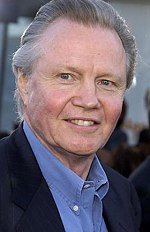 This morning I taped an interview with actor Jon Voight for my diocesan radio show. Last December, CBS aired a made-for-TV movie on the life of JP2, and in the movie Voight played Pope John Paul in the years between his election to the Papacy in 1978 until his death in 2005.
This morning I taped an interview with actor Jon Voight for my diocesan radio show. Last December, CBS aired a made-for-TV movie on the life of JP2, and in the movie Voight played Pope John Paul in the years between his election to the Papacy in 1978 until his death in 2005.It was a great rush to have someone famous on the show; certainly he is the most famous person outside of Church circles that I've had on as a guest. But I also have to say he was very nice and certainly had no "I'm an Oscar-winner" attitude about him. In fact, he's such a "regular guy" that when I called him to arrange the time for the interview, he was talking to me on his cell phone while cleaning his house in anticipation of a trip he was about to take.
We obviously spoke about the movie, Pope John Paul II, which was released on DVD a few weeks ago. We spoke about the research he put into preparing for the role (reading the Pope's encyclicals and poetry, watching footage, listening to recordings of his voice). We spoke about the film's shooting on locations near and dear to JP2's heart: The Vatican and Krakow, and we spoke about meetings he had with those close to the Pope, especially Cardinal Dziwisz, JP2's former secretary.
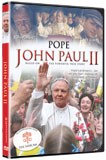
The interview will be online for a week, starting this Friday, if you click on the link for "Proclaim the Good News Radio Show" to the right of your screen. In the meantime, if you're looking for a Christmas gift for a Young Fogey in your life, or anyone for that matter, it's a 3 hour movie with a bunch of extras on the DVD.
Friday, November 24, 2006
B16 on Thanksgiving
But in a collection of articles, homilies, and lectures on the Eucharist which Ignatius Press published under the title, God Is Near Us, Pope Benedict has this to say about thanksgiving to God in the old Covenant being continued in the new Covenant:
 "The heart of Israel's worship has always been what we express in the Latin word memoriale: remembrance. Whenever the Passover is celebrated, before the lamb is eaten, the head of the household recites the Passover Haggadah, that is to say, an account praising the great works God has done for Israel. ...
"The heart of Israel's worship has always been what we express in the Latin word memoriale: remembrance. Whenever the Passover is celebrated, before the lamb is eaten, the head of the household recites the Passover Haggadah, that is to say, an account praising the great works God has done for Israel. ...It was into the texture of the Passover Haggadah, this thanksgiving prayer, that Jesus wove his sayings at the Last Supper, ... The Canon of the Roman Mass developed directly from these Jewish prayers of thanksgiving; it is the direct descendant and continuation of the prayer of Jesus at the Last Supper and is thereby the heart of the Eucharist. It is the genuine vehicle of the sacrifice, since thereby Jesus Christ transformed his death into verbal form - a prayer - and, in so doing, changed the world. ...
Because he turned death into a proclamation of thanksgiving and love, he is now able to be present down through all the ages as the wellspring of life, and we can enter into him by praying with him. ... The magnitude of Christ's achievement consists in precisely in his not remaining someone else, over and against us, who might thus relegate us once more to a merely passive role; he does not merely bear with us; rather, he bears us up; he identifies himself with us to such an extent that our sins belong to him and his being to us: he truly accepts us and takes us up, so that we ourselves become active with his support and alongside him, so that we ourselves cooperate and join in the sacrifice with him, participating in the mystery ourselves. Thus our own life and suffering, our own hoping and loving, can also become fruitful, in the new heart he has given us." (God Is Near Us, pp.49-50)
Only For Today
 A month ago, on the Feast day of Blessed John XXIII (October 11), Vatican Secretary of State Tarcisio Cardinal Bertone celebrated a Mass at the Pope's tomb in St. Peter's Basilica. This morning, the Vatican newshounds at Zenit published an English translation of Cardinal Bertone's homily. In it, he gives what he calls the "Daily Decalogue of Pope John XXIII". In this world that obsesses on "Chicken Soup for the Soul", it's good to remember the great (and sometimes untapped) resource we have in the wisdom of the Saints.
A month ago, on the Feast day of Blessed John XXIII (October 11), Vatican Secretary of State Tarcisio Cardinal Bertone celebrated a Mass at the Pope's tomb in St. Peter's Basilica. This morning, the Vatican newshounds at Zenit published an English translation of Cardinal Bertone's homily. In it, he gives what he calls the "Daily Decalogue of Pope John XXIII". In this world that obsesses on "Chicken Soup for the Soul", it's good to remember the great (and sometimes untapped) resource we have in the wisdom of the Saints.1) Only for today, I will seek to live the livelong day positively without wishing to solve the problems of my life all at once.
2) Only for today, I will take the greatest care of my appearance: I will dress modestly; I will not raise my voice; I will be courteous in my behavior; I will not criticize anyone; I will not claim to improve or to discipline anyone except myself.
3) Only for today, I will be happy in the certainty that I was created to be happy, not only in the other world but also in this one.
4) Only for today, I will adapt to circumstances, without requiring all circumstances to be adapted to my own wishes.
5) Only for today, I will devote 10 minutes of my time to some good reading, remembering that just as food is necessary to the life of the body, so good reading is necessary to the life of the soul.

6) Only for today, I will do one good deed and not tell anyone about it.
7) Only for today, I will do at least one thing I do not like doing; and if my feelings are hurt, I will make sure that no one notices.
8) Only for today, I will make a plan for myself: I may not follow it to the letter, but I will make it. And I will be on guard against two evils: hastiness and indecision.
9) Only for today, I will firmly believe, despite appearances, that the good providence of God cares for me as no one else who exists in this world.
10) Only for today, I will have no fears. In particular, I will not be afraid to enjoy what is beautiful and to believe in goodness. Indeed, for 12 hours I can certainly do what might cause me consternation were I to believe I had to do it all my life.
Thursday, November 23, 2006
Thanksgiving: The one day a year when the rest of America does what Catholics do at Mass every day

Whereas it is the duty of all Nations to acknowledge the providence of Almighty God, to obey his will, to be grateful for his benefits, and humbly to implore his protection and favor -- and whereas both Houses of Congress have by their joint Committee requested me "to recommend to the People of the United States a day of public thanksgiving and prayer to be observed by acknowledging with grateful hearts the many signal favors of Almighty God especially by affording them an opportunity peaceably to establish a form of government for their safety and happiness."
Now therefore I do recommend and assign Thursday the 26th day of November next to be devoted by the People of these States to the service of that great and glorious Being, who is the beneficent Author of all the good that was, that is, or that will be -- That we may then all unite in rendering unto him our sincere and humble thanks -- for his kind care and protection of the People of this Country previous to their becoming a Nation -- for the signal and manifold mercies, and the favorable interpositions of his Providence which we experienced in the tranquility [sic], union, and plenty, which we have since enjoyed -- for the peaceable and rational manner, in which we have been enabled to establish constitutions of government for our safety and happiness, and particularly the national One now lately instituted -- for the civil and religious liberty with which we are blessed; and the means we have of acquiring and diffusing useful knowledge; and in general for all the great and various favors which he hath been pleased to confer upon us.
And also that we may then unite in most humbly offering our prayers and supplications to the great Lord and Ruler of Nations and beseech him to pardon our national and other transgressions -- to enable us all, whether in public or private stations, to perform our several and relative duties properly and punctually -- to render our national government a blessing to all the people, by constantly being a Government of wise, just, and constitutional laws, discreetly and faithfully executed and obeyed -- to protect and guide all Sovereigns and Nations (especially such as have shewn [sic] kindness onto us) and to bless them with good government, peace, and concord -- To promote the knowledge and practice of true religion and virtue, and the encrease [sic] of science among them and us -- and generally to grant unto all Mankind such a degree of temporal prosperity as he alone knows to be best.
Given under my hand at the City of New York
the third day of October in the year of our Lord 1789.
George Washington
Wednesday, November 22, 2006
How Many Trees?, Holy Father, HOW MANY?
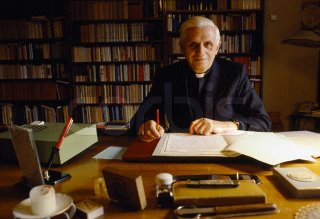 Stories are abundant in this morning's news that Pope Benedict's first book since his election is to be released in the spring. Volume One of "Jesus of Nazareth" will reportedly be a series of reflections on the life of Christ from his Baptism to the Transfiguration. During this past summer's stay in the Italian Alps and at Castelgandolfo, word was out that the Holy Father was putting finishing touches on a book.
Stories are abundant in this morning's news that Pope Benedict's first book since his election is to be released in the spring. Volume One of "Jesus of Nazareth" will reportedly be a series of reflections on the life of Christ from his Baptism to the Transfiguration. During this past summer's stay in the Italian Alps and at Castelgandolfo, word was out that the Holy Father was putting finishing touches on a book.Today's New York Times reports that Pope Benedict "has finished the first ten chapters of a longer projected life of Jesus." In the preface to the book (released by the Vatican), the Holy Father writes that the work is the fruit of a "long, personal journey" that began as a young man.
Of course, things are a little different for the pen of the prolific Pontiff. Now, when he writes (on matters of faith and morals, anyway) there's the whole question of Infallibility. Can a scholarly Pope go off on a theological tangent? Can he float a theory he has without intimidating theologians? Have no fear. B16 explains that the book is "solely a reflection of [his] personal research.", and then added, "Therefore, everyone is free to contradict me."
Another book? How much knowledge is in that mind of his? Will he ever stop writing? How many trees has this man been responsible for murdering just so he can keep Ignatius Press fiscally solvent?!? Stop writing, Holy Father, and give us all a chance to "catch up"!
Just kidding. Do what you want.
[WARNING: SHAMELESS SELF-PROMOTION FOLLOWS] I've just found out that the book I collaborated on, John Paul II For Dummies, is now available for pre-order on Amazon.com for delivery on or about December 18th. Bookstores won't have it in stock until after Christmas. Make it a Christmas gift for the YF in your life.
Tuesday, November 21, 2006
Feast of the Presentation of Mary
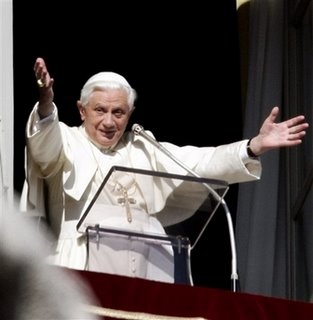 Today's Feast brought a tidbit I never remember hearing before: On this day the Church prays in a special way for the intentions of cloistered religious. In his Sunday Angelus message last Sunday, Pope Benedict said this (thanks to zenit.org for the translation):
Today's Feast brought a tidbit I never remember hearing before: On this day the Church prays in a special way for the intentions of cloistered religious. In his Sunday Angelus message last Sunday, Pope Benedict said this (thanks to zenit.org for the translation):"The day after tomorrow, November 21, on the occasion of the liturgical memorial of the Presentation of Mary Most Holy in the Temple, we celebrate "pro Orantibus" Day, dedicated to remembering cloistered religious communities. It is a particularly appropriate occasion to thank the Lord for the gift of so many persons who, in monasteries and hermitages, are totally dedicated to God in prayer, silence and hiddenness.
Some wonder about the meaning and value of their presence in our time, in which many urgent situations of poverty and need must be addressed. Why "shut oneself" forever behind the walls of a monastery and deprive others of the contribution of one's talents and experiences? What efficacy can prayer have to resolve the numerous concrete problems that continue to afflict humanity?
In fact, also today numerous persons often surprise friends and acquaintances when they abandon professional careers, often promising careers, to embrace the austere rule of a cloistered monastery. What leads them to take such a committed step if not their having understood, as the Gospel teaches, that the Kingdom of heaven is "a treasure" for which it is worth abandoning everything (cf. Matthew 13:44)?
These brothers and sisters silently witness that in the midst of daily vicissitudes, at times extremely convulsive, God is the only support that never falters, the unbreakable rock of fidelity and love. "Todo se pasa, Dios no se muda" [Everything passes, God is unchanging], wrote the great spiritual teacher Teresa of Avila in her famous text. And, given the widespread need that many experience to leave the daily routine of the great urban agglomerations in search of appropriate spaces for silence and meditation, monasteries of contemplative life appear as "oases" in which man, a pilgrim on earth, can go to the sources of the Spirit and slake his thirst along the way.
These places, apparently useless, are, on the contrary, indispensable, like the green "lungs" of a city: They are beneficial for all, including for those who do not visit them or perhaps do not know that they exist.
Dear brothers and sisters: Let us thank the Lord, who in his providence, has willed that there be cloistered communities, masculine and feminine. May they not lack our spiritual and also material support so that they will be able to fulfill their mission of keeping alive in the Church the ardent expectation of Christ's return. Let us invoke, for this reason, the intercession of Mary, whom, in the memorial of the Presentation in the Temple, we will contemplate as mother and model of the Church, who unites in herself both vocations: to virginity and to marriage, to the contemplative and to the active life."
I've been blessed in my life to have some interaction with cloistered religious. In my first year of seminary, I was assigned to a food pantry/soup kitchen in Alexandria, Virginia. One day we loaded up trucks and brought food to a Monastery of Poor Clares. The sister who greeted us asked where I was from, and when I responded I was from New Jersey, her face lit up and she told me she was from Red Bank in the Garden State! This began a "pen pal" relationship which has continued since. That first day, my fellow Jerseyan gave me a book to read about cloistered life, written by a Poor Clare Abbess. I was so happy when I saw it appear in an Ignatius Press catalog, because it'll give anyone a deeper appreciation and understanding of the particularly unique vocation to cloistered life (as well as make you laugh out loud at times). Maybe you'll want to put the book on your Christmas list, just in case the cable goes out during a winter storm.
Here in my diocese we're blessed to have a cloistered community of Carmelites. Take some time to check out their website to get a good read on their vocation.
Of Mike and Mel...
 OK, so Michael Richards gets caught on tape letting out a bunch of racist comments that make us all wonder what's going on inside this guy's mind? This is no rookie on the comedy stage. Long before Seinfeld, I remember watching this guy on a show in the 1980s called "Fridays" (which was ABC's attempt to copy NBC's Saturday Night Live). In short, the man has been doing stand up comedy for decades and should be well-experienced in how to deal with hecklers from the audience. He's apologized and expressed his deep regrets over the momentary loss of the chip in his brain that filters the connection between his brain and his mouth. But hasn't this song been played before?
OK, so Michael Richards gets caught on tape letting out a bunch of racist comments that make us all wonder what's going on inside this guy's mind? This is no rookie on the comedy stage. Long before Seinfeld, I remember watching this guy on a show in the 1980s called "Fridays" (which was ABC's attempt to copy NBC's Saturday Night Live). In short, the man has been doing stand up comedy for decades and should be well-experienced in how to deal with hecklers from the audience. He's apologized and expressed his deep regrets over the momentary loss of the chip in his brain that filters the connection between his brain and his mouth. But hasn't this song been played before?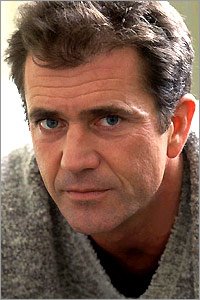 It wasn't too long ago that something similiar happened to Mel Gibson, and Hollywood went ballistic about an uncontrolled tirade full of bigoted comments. Only some things were different: Mel's comments were included word-for-word in every journalistic account of the story, while Michael's are being asterisk'ed out and described with an ambiguous "racist remarks". Mel was documented to be intoxicated, while Michael was essentially "at work". Gibson has been the target of late-night comedic jokes and insults, while Michael was given free airtime on David Letterman and a sympathetic forum from Dave and Jerry Seinfeld to publicly express his contrition. Gibson has been called "The Most Frigid" Hollywood personality because Hollywood as a corporate body has decreed Mel needs to be punished for his deeds. Season 7 of "Seinfeld" comes out tomorrow on DVD; think anyone will suggest a boycott to show the same attitude towards Richards?
It wasn't too long ago that something similiar happened to Mel Gibson, and Hollywood went ballistic about an uncontrolled tirade full of bigoted comments. Only some things were different: Mel's comments were included word-for-word in every journalistic account of the story, while Michael's are being asterisk'ed out and described with an ambiguous "racist remarks". Mel was documented to be intoxicated, while Michael was essentially "at work". Gibson has been the target of late-night comedic jokes and insults, while Michael was given free airtime on David Letterman and a sympathetic forum from Dave and Jerry Seinfeld to publicly express his contrition. Gibson has been called "The Most Frigid" Hollywood personality because Hollywood as a corporate body has decreed Mel needs to be punished for his deeds. Season 7 of "Seinfeld" comes out tomorrow on DVD; think anyone will suggest a boycott to show the same attitude towards Richards?Both men deepy wish they could turn back time and lose their respective 15 minutes of infamy. But for now, why does it seem that Mike is in nowhere as much hot water as Mel? Hmmm, guess it's a good thing Mike never made a Jesus movie.
Sunday, November 19, 2006
There is a House in Steubenville...
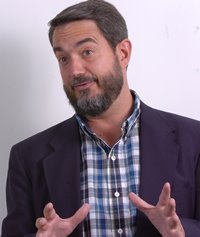 "The House of the Rising Son: The Book of Hebrews" That's the name of Scott Hahn's intense study of the Letter to the Hebrews. It was recorded during a university summer session course, and it's available from St. Joseph's Communications. Be warned: Dr. Hahn's stuff is densely packed as he starts teaching about stuff he's passionate about. Young Fogeys can certainly listen to it while driving in a car, but to get the most out of it, this is one of those things you're also going to want to listen to at a desk with your bible and a notepad handy. The tapes/CDs are arranged by chapter, so you can read the chapter ahead of time, or judge how many of them to bring along (depending on the length of your road trip).
"The House of the Rising Son: The Book of Hebrews" That's the name of Scott Hahn's intense study of the Letter to the Hebrews. It was recorded during a university summer session course, and it's available from St. Joseph's Communications. Be warned: Dr. Hahn's stuff is densely packed as he starts teaching about stuff he's passionate about. Young Fogeys can certainly listen to it while driving in a car, but to get the most out of it, this is one of those things you're also going to want to listen to at a desk with your bible and a notepad handy. The tapes/CDs are arranged by chapter, so you can read the chapter ahead of time, or judge how many of them to bring along (depending on the length of your road trip).Why do I bring this up? Since the beginning of October, the second reading on Sundays has been from the Letter to the Hebrews. Since the 29th Sunday (October 22), the passages have been about the superiority of the eternal Priesthood of Jesus Christ over the Levitcal Priesthood previously established by God.

The readings are filled with passages such as, "passed through the heavens", "according to the order of Melchizedek", "he has no need to offer sacrifice day and night", "offering the sacrifices that can never take away sins", etc. Terms we can't fully appreciate unless we have a little understanding of the theology of Old Testament Jewish Priesthood and what liturgical worship was like back then. Then we can see how Christ's Priesthood is the perfect consummation of what was only only temporarily accomplished by the Temple Priests on earth.
And while you're in the Christmas shopping season, you should check out the entire catalog of St. Joseph's Communications. They've got it all: tapes, CDs, DVDs, videos, for the Young Fogey in your life who seeks to learn more about their faith.
Saturday, November 18, 2006
Feast of the Dedication of the Basilicas of Sts. Peter & Paul


Why November 18? On November 18, 326, the first St. Peter's Basilica was consecrated by Pope Sylvester I. When the original basilica was demolished and rebuilt (taking 120 years to do - 1506-1626), the new basilica was consecrated by Pope Urban VIII on November 18, 1626: the 1,300th anniversary of the previous basilica's consecration.
Friday, November 17, 2006
My Fr. Fessio Interview
 On Tuesday I taped an interview with Fr. Joe Fessio for my radio show. He's the founder of Ignatius Press, as well as Provost of Ave Maria University down in Florida. Ignatius has three new books out, two of them by Pope Benedict, and one of them about him. This is the second time he's been a guest on the show, and it's always a great half-hour of radio when he gets going.
On Tuesday I taped an interview with Fr. Joe Fessio for my radio show. He's the founder of Ignatius Press, as well as Provost of Ave Maria University down in Florida. Ignatius has three new books out, two of them by Pope Benedict, and one of them about him. This is the second time he's been a guest on the show, and it's always a great half-hour of radio when he gets going.Of course, the coolest thing about Fr. Fessio is that, in his years of formation in the Jesuits, he studied under two of the great theologians of the 20th century. Studying in France in the early 1970's, Fessio's advisor, Jesuit Fr. Henri deLubac, suggested he write his doctoral dissertation on the writings of theologian Fr. Hans Urs von Balthasar. To do this, deLubac sent him to the University of Regensburg in Germany to complete his work under the tutelage of a German professor named Fr. Josef Ratzinger. Talk about brushes with greatness! deLubac was named a Cardinal by Pope John Paul II in 1983, von Balthasar was named a Cardinal in 1988 (but sadly died the eve before the ceremony), and Ratzinger was, well, you know the story. Fessio and the other doctoral students of Professor Ratzinger formed a Schulerkreis, a "student circle" that continued to meet with their former teacher every year in a seminar setting. With the election of Ratzinger to the papacy, they assumed the meetings would stop. But as Fessio explains it, the Holy Father wanted to keep the meetings going. Last year's seminar at Castelgandolfo discussed Islam, while the seminar this past September discussed creation and evolution.
I'm in my fourth year of hosting the radio show, and I've had some well-known guests. But Fr. Fessio is certainly in the top 5 for a little diocesan radio show. Who's my "dream guest"? C'mon, is there any question?

Ave PlayStation 3, Spes Unica!

This morning, stories about the release of Sony's PlayStation 3 are filling the airwaves. For hours, lines of twenty-somethings sat outside stores in anticipation of the "privilege" of shelling out $650. to buy a game. Some did it for noble reasons (one story I read told of a woman hoping to buy the game for a younger relative displaced last year by Hurricane Katrina), while some did it for the game's resale value on Ebay (as of now around $10,000.-- Milton Friedman would be proud). But most are doing it for themselves. GenY wants PS3. What they wanted last Christmas doesn't matter; that was then. By next Christmas, PlayStation 4 might be out, and if so, this game will be old and not satisfying anymore so they'll move on.
You wonder why new vocations to the Priesthood and Religious Life are in a "crisis"? Don't blame celibacy. Don't blame the sexual abuse crisis. Blame commitment ("What if something cooler comes along? Can't I just walk away and move on?"). Blame the "instant gratification" society ("I want to use it now, while it's fun and trendy and pleases me."). Blame prosperity ("Mom? Dad? If you realllllly love me, you'll forsake paying all the utility bills for a month so you can get me this toy! John and Marys' parents got it for them; they must be loved more.").
If the "vocations well" was dry, while young people were still getting married in their 20s, then we could say the problem lies with us. But most Young Fogey Priests know the average age of couples coming to us for marriage is about 30, and with living together so widely accepted there's no reason to commit. Until we solve the puzzle of how to make young people understand the permanent commitment (in good times and in bad, in sickness and in health...), don't look for baby-faced brides, grooms, priests, brothers or sisters.
Thursday, November 16, 2006
The Church is Bigger Than Us
St. Paul and the New Evangelization
"The first Catholic newspapers were born in Baltimore, where the necessity
for them was truly seen. Today, Mass media has developed enormously. Media can
cause damage, but can be used also for great good. With competent and well
trained personnel, the Catholic Church should find ways to utilize the media
more effectively for the service of the Gospel and in the service of humanity. We can only imagine how Saint Paul would have used the Mass Media of today."
Abp. Sambi is only reiterating what's been a consistent theme from Rome for over forty years. One of the Second Vatican Council's 16 documents was on the topic of social communications. 1963's Inter Mirifica called upon all members of the Church to "make a concerted effort to ensure that the means of communication are put at the service of the multiple forms of the [social communications] apostolate without delay and as energetically as possible, where and when they are needed. (par. 13)" In one of his final documents, 2005's Apostolic Letter The Rapid Development, Pope John Paul II wrote, "New technologies ... create further opportunities for communications understood as a service to the pastoral government and organization of the different tasks of the Christian community. One clear example today is how the Internet not only provides resources for more information, but habituates persons to interactive communication (par. 9)."
Young Fogey Priests take heed: The New Evangelization is here and we've got to respond. Ask yourselves how you get information and, if you're like me, it comes from television and the internet. TV time is usually far too expensive for any single person to buy, but don't underestimate the local public-access stations and their openness to air 30 minutes of prerecorded catechetics. The internet is clearly the way to go for the future, which nowadays covers everything from television (YouTube, for example), radio, and print media.
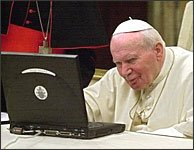 Communications in the 21st century is instant and on-demand; your average parishioner with internet access wants to know the news at any given time they choose to sit in front of their computer. Setting up a Blog is free and can be an extension of our preaching and teaching. Some parishes even record the weekend homilies of their Priests/Deacons and stream them over their parish's website. Dioceses should have their diocesan newspapers available on-line. Even secular newspapers admit a constant decline in subscribers (why? By the time the next day's newspaper hits the stands it's 'old news' in the age of the 24-hour cable news channels - people read newspapers today more for the columnists than for the columns). Parishes could have homilies downloadable for iPods (mp3 players are huuuuuuge amongst teens, college kids, and the 20-somethings) or for the worker who comes home from the 3-11 shift and checks e-mails at 2am. Who can say how many souls we can touch who don't attend Mass regularly or who can't attend Mass because of sickness or a work schedule that prevents it?
Communications in the 21st century is instant and on-demand; your average parishioner with internet access wants to know the news at any given time they choose to sit in front of their computer. Setting up a Blog is free and can be an extension of our preaching and teaching. Some parishes even record the weekend homilies of their Priests/Deacons and stream them over their parish's website. Dioceses should have their diocesan newspapers available on-line. Even secular newspapers admit a constant decline in subscribers (why? By the time the next day's newspaper hits the stands it's 'old news' in the age of the 24-hour cable news channels - people read newspapers today more for the columnists than for the columns). Parishes could have homilies downloadable for iPods (mp3 players are huuuuuuge amongst teens, college kids, and the 20-somethings) or for the worker who comes home from the 3-11 shift and checks e-mails at 2am. Who can say how many souls we can touch who don't attend Mass regularly or who can't attend Mass because of sickness or a work schedule that prevents it?The reasons against it? It takes time and effort. It may require more thought be put into homily preparation if it's going out into cyberspace. It may mean more work, as people with questions about the faith send e-mails or people who haven't been to church in years come back. But as Archbishop Sambi called St. Paul to mind, wondering how he'd have used today's communications possibilities in his apostolic work, we can only make his words our own, "I remind you to rekindle the gift of God that is within you through the laying on of ... hands; for God did not give us a spirit of timidity but a spirit of power and love and self-control. (2 Tim 1:6-7)"
Wednesday, November 15, 2006
Tuesday, November 14, 2006
Good Grief!
 First, let me say that there was something much more profound (well, as profound as you can get coming from me) set to be posted. Then my computer went all crazy and the post was gone. So I'm afraid you'll have to settle for this.
First, let me say that there was something much more profound (well, as profound as you can get coming from me) set to be posted. Then my computer went all crazy and the post was gone. So I'm afraid you'll have to settle for this.Yesterday was one of those Charlie Brown days (and I mean this guy pictured, not the American Monsignor of the same name who works for the Congregation of the Doctrine of the Faith). I had a couple come in who wants to get married. We had a fine meeting and at the end the bride-to-be shook my hand and said, "I'm so glad I met you." It's one of those moments which make the Priesthood fulfilling.
I should have called it a day right there, and ended on a high note. But no.
After the meeting I taught my weekly adult education class. As usual, I began (a la Carol Burnett) by asking if they had any questions. A new face was there; someone I never saw in the 3+ years I've been teaching this class at my parish. Out of the blue, she asked a question about why we've changed something at our weekend Masses. I answered that not all change is bad, there's variety in life, etc. What followed was what I know to be usual, but perhaps a first-timer did not. The crowd that attends is pretty regular. Everybody knows everybody else, and that familiarity allows for some interesting remarks. Well she didn't know that, and when she felt the crowd "turn on her", she picked up her bag, tucked her chair under the table, and walked out. Whereupon I spent the rest of my night wondering if I answered wrong, if I could've controlled the crowd, etc.
I should have called it a day and ended on a high note, but no. Good grief.






